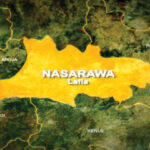In these days in which economic downturn, insecurity and all other ills prevalent in Nigeria have been joined by corona-virus (COVID-19), it would on the face of it seem to be a misplaced priority to focus on satellite television providers. All said and done, their services are geared towards the well-to-do rather than the majority. However, in a situation where “social distancing” and “stay at home” orders are becoming the norm, Nigerians increasingly resort to watching TV and it’s appropriate to examine the way the largest satellite TV provider Multichoice exploits its Nigerian subscribers.
There’s no doubt that something must urgently be done to call them to order. DSTV was launched in 1995 and since then Multichoice, a South African company, has stubbornly declined to implement “pay as you go” plans and resolutely continues to charge customers a fixed monthly fee unlike what obtains overseas. The House of Representatives has announced that it’s in the process of setting up an ad-hoc committee to liaise with all Satellite TV service providers and enforce payment plans which allow customers to pay for only what they watch. It’s long overdue because the National Broadcasting Commission (NBC) Act empowers the Commission to regulate ownership and operations of broadcasting service providers, and they require regulating. In the absence of major sports such as live football, tennis, or golf, the poor fare Multichoice offers which most subscribers never watch but are forced to pay for, is all too apparent.
Despite Nigeria constituting approximately 40% of DSTV’s market, and despite constant complaints about paying for services not used, Multichoice refuses to budge and it’s been one form of exploitation after another. Subscribers who have patronised DTSV since inception have been forced to continuously re-invest in equipment. The company commenced operations by supplying a large dish with “c-band” decoders. Subscribers were then made to discard them and purchase new smaller dishes and “ku-band” decoders with neither refund nor discount for previous decoders bought. Subsequently, Multichoice has held subscribers to ransom, continuing to change their decoders at will, at the customers‘ expense. While Nigerians fill their homes with obsolete DSTV equipment, South Africans are offered part-exchange for upgrades. Indeed, there is no benefit to buying a DSTV decoder if monthly subscription is not paid.
Worse still, Multichoice charges for local channels which are free on normal television. In the UK, anyone purchasing a Sky-TV decoder will automatically have access to so many free channels. Only live sporting events or the latest current films are required to be paid for using their pay-as-you go channels, and customers can determine the exact cost of watching a live sporting even or current film. As if being charged for what is not watched isn’t bad enough, DSTV in Nigeria frustrates customers with an inappropriate method of programming decoders. Subscribers who are viewing when PHCN take light suffer because by the time they switch on their generator to continue watching, their decoder will be locked by a message stating that their account is being checked and a minimum of five minutes will elapse before they can continue watching what they were watching before! The customer is never compensated for this waste of viewing time, nor are they compensated when through no fault of their own because of rain DSTV can’t provide a signal.
Also, many customers complain about being scrambled when they have paid, and nothing is done to compensate them for their loss. The truth of the matter is that there are, on average, 720 hours in a month. Most Nigerians don’t watch DSTV for up to five hours per day. If monthly payments were converted into hours, it would take five or six months for customers to use the 720 hours they are charged for every month. In reply to complaints, Multichoice management staff quite arrogantly (but correctly), say that their service isn’t compulsory and anyone who doesn’t like it has the option of no longer subscribing. With a monthly premium subscription of almost N16,000, it comes as no surprise that they report an increasing number of Nigerians deciding that it isn’t worth the money. In the absence of live sports, and the loss of channels such as Crime Channel, their programme content is declining. In the beginning DSTV broadcast the sporting channel ESPN which showed sports like NFL American football, USPGA golf, NBA basketball and baseball.
Channels such as ESPN have gone and been replaced by a plethora of sub-standard African, European, Indian, and Chinese film channels. As for Holllywood films, the same old ones are played repeatedly. Even children complain that cartoons are routinely rehashed! While Multichoice claims to have multiple channels with a wide range of viewing, they have been accused of being fraudulent because it’s not uncommon for the same film, programme or sporting event to be shown on two or three channels simultaneously! The Federal Government’s plan to spend $500 million “digitising” the Nigerian Television Authority (NTA) as an alternative is a waste of money. The reason Nigerians shun NTA isn’t the poor quality of the picture and soundtrack, but rather the poor quality of their programme contents, the visually unstimulating and antiquated set designs, their lack of vibrancy and their biased view of government activities.
The reason so many Britons watch the British Broadcasting Corporation (BBC) is that despite being government owned it isn’t a propaganda machine. Their presenters report the truth and criticise government officials or policy whenever the need arises. As more Nigerians turn towards watching television, the Nigerian Broadcasting Commission must regulate Multichoice and other satellite TV providers, and force them to operate a “pay as you go” tariff plan like in other countries or leave the shores. There is no justification for foreign companies making Nigerian customers paying for services they don’t use. Regrettably, Nigerians have found themselves in a situation where even though there is really no real choice Multichoice, there is little real choice other than Multichoice!




